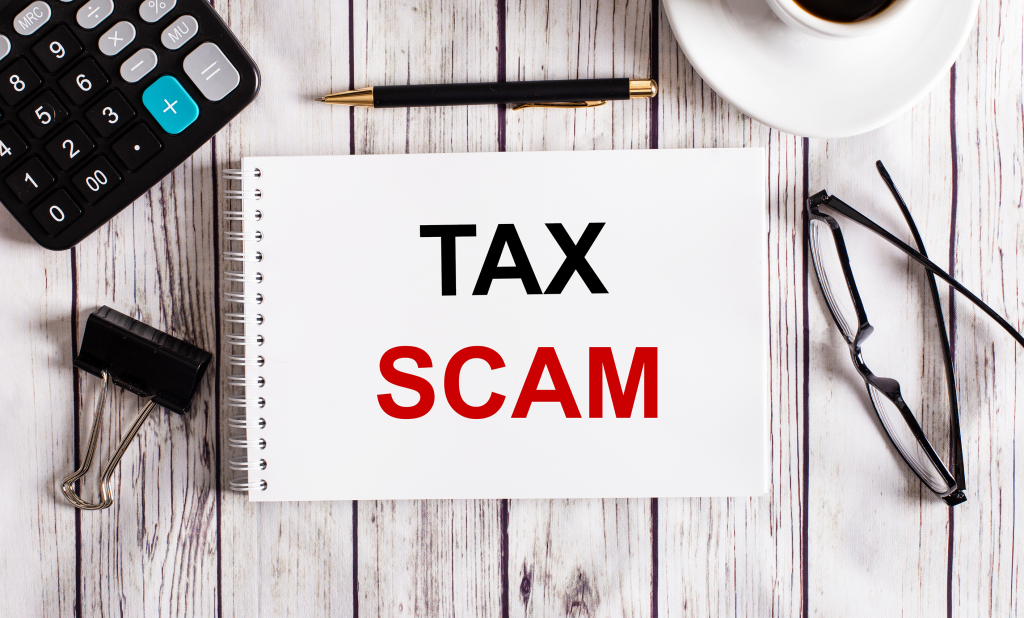Avoid Tax Fraud Scams this Tax Season

Tax season presents a great opportunity for cybercriminals and identity thieves to target email inboxes with phishing emails related to preparing and filing tax returns. These malicious emails often impersonate the IRS or state tax agencies. With a new wave of tax identity fraud hitting the U.S. this year, there are several things you should know to steer clear of these scams and protect your bank accounts.
How Can I Avoid Tax Scams?
Be on high alert for phishing emails, which attempt to steal information such as tax IDs, account information, passwords, and other valuable data. Be immediately suspicious of any unsolicited email, text message or phone call asking for your Social Security number, bank account number and login credentials, or other personal information.
Here are some frequently asked questions that can help protect you from these tax return ID theft scams:
- Will the IRS contact me via email? No. The IRS will never contact you via e-mail, text messages, or social media with a request for any personal or financial data, PIN numbers, or passwords. Be extremely careful with any unsolicited email that claims to be from the IRS.
- What should I do if I receive an email or text message from the IRS or a state tax agency asking for sensitive information? Do not reply! Do not click on any links or download any attachments. Delete the original message without responding.
- What should I do if I receive an unsolicited phone call claiming to be from the IRS that I suspect may not be legitimate? Call the IRS yourself to confirm any requests made via phone or letter, particularly those that are threatening or demand immediate payment.
Taxpayer Coronavirus Relief Scams
The IRS is warning taxpayers about a new wave of COVID-19-related scams as the agency delivers the second round of Economic Impact Payments. In the last several months, the IRS has seen a variety of COVID-19 related Economic Impact Payment (EIP) scams and other financial schemes designed to steal money and personal information from taxpayers. Criminals are taking advantage of the second round of Economic Impact Payments as well this filing season – to trick honest taxpayers out of their hard-earned money. Here are two of the most common scams to watch out for.
- Text messages asking taxpayers to disclose bank account information under the guise of receiving the $1,200 Economic Impact Payments.
- Phishing schemes using email, letters and social media messages with key words such as “Coronavirus,” “COVID-19,” and “stimulus” in varying ways. These communications are blasted to large numbers of people and aim to access personally identifying information and financial account information including account numbers and passwords.
Fraudsters Posing as Taxpayer Advocacy Panel
Some taxpayers are receiving emails that appear to be from the Taxpayer Advocacy Panel (TAP) about their tax refund. These emails are a phishing scam trying to trick victims into providing personal and financial information. Do not respond or click any link in these types of emails. According to the IRS, TAP is a volunteer board that advises the IRS on systemic issues affecting taxpayers. It never requests and does not have access to any taxpayer’s personal and financial information.
A Warning to Tax Preparers
The IRS also recently issued a warning noting that fraudsters are also targeting tax preparers by impersonating potential clients. This approach has become more effective because more transactions are being remotely conducted due to the COVID-19 pandemic. These phishing emails likely contained a malicious attachment that, when opened, would download malware, such as information stealers designed to record keystrokes or harvest credentials.
Besides Electronic Filing Identification Numbers, the fraudsters might attempt to steal the tax pros’ Preparer Tax Identification Numbers or e-services usernames and passwords. Once they have these identification numbers, these thieves will try to steal client data that will allow them to file fraudulent tax returns for refunds.
What Victims of Tax Return Fraud Should Do
You can forward unsolicited emails or social media attempts that appear to be from the IRS or another organization to phishing@irs.gov. Do not communicate with potential scammers online or over the phone.
If you receive notice that your tax returns have already been filed before you’ve actually filed your returns, or if you believe you’ve otherwise become victim of tax fraud, here’s what you need to know. The IRS doesn’t provide any easy way to fight this fraud. In fact, you may have a real fight to prove that YOU are not the identity thief!
The best way to protect against this crime is to already have a complete cybersecurity and identity protection service like iDefend with a team of fraud experts who will fight for you and handle your case from start to finish. Without this help on-demand, you are likely facing months of working fighting to prove your identity with the IRS, fighting to re-file your returns, and then hope you’ll be able to get your refund at the end of it all.
Learn more about complete cyber defense for you and your loved ones with iDefend.







